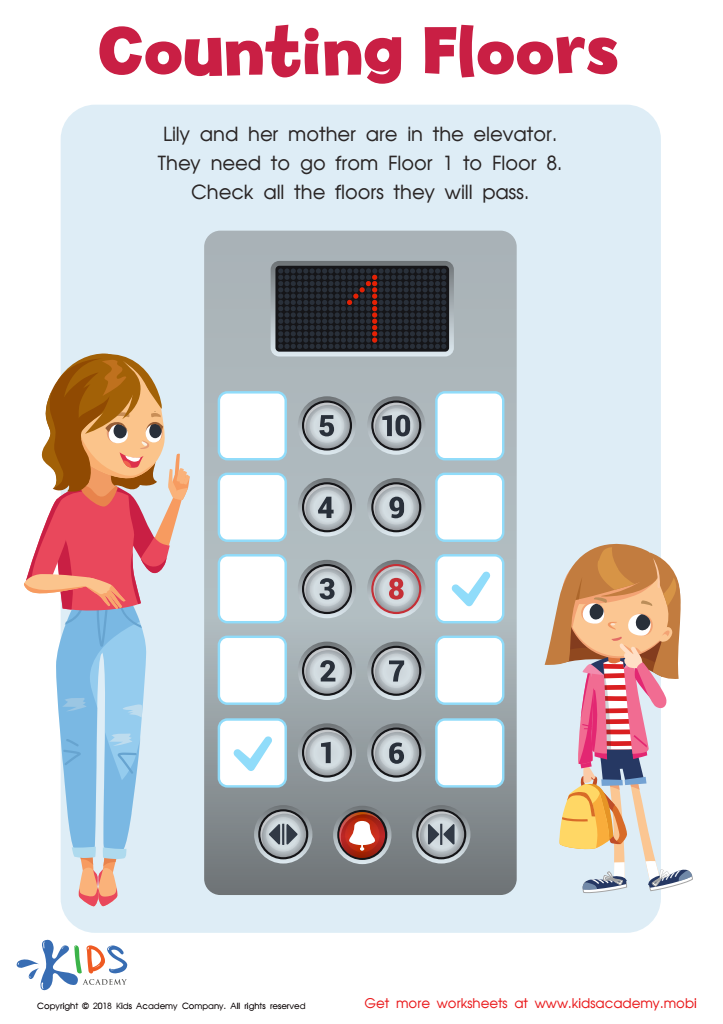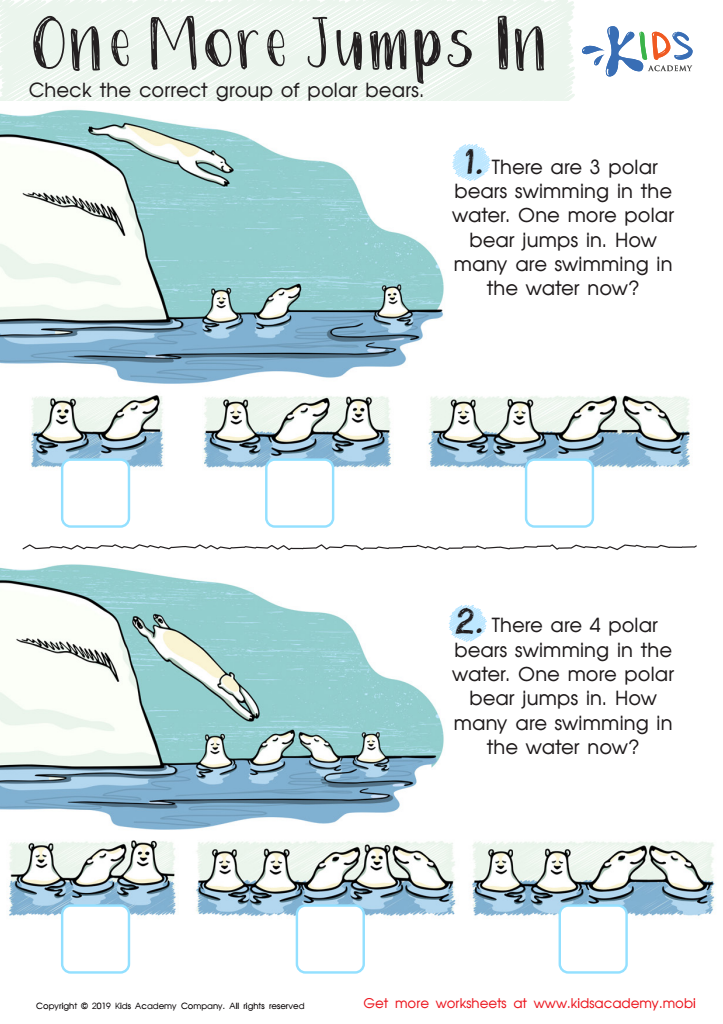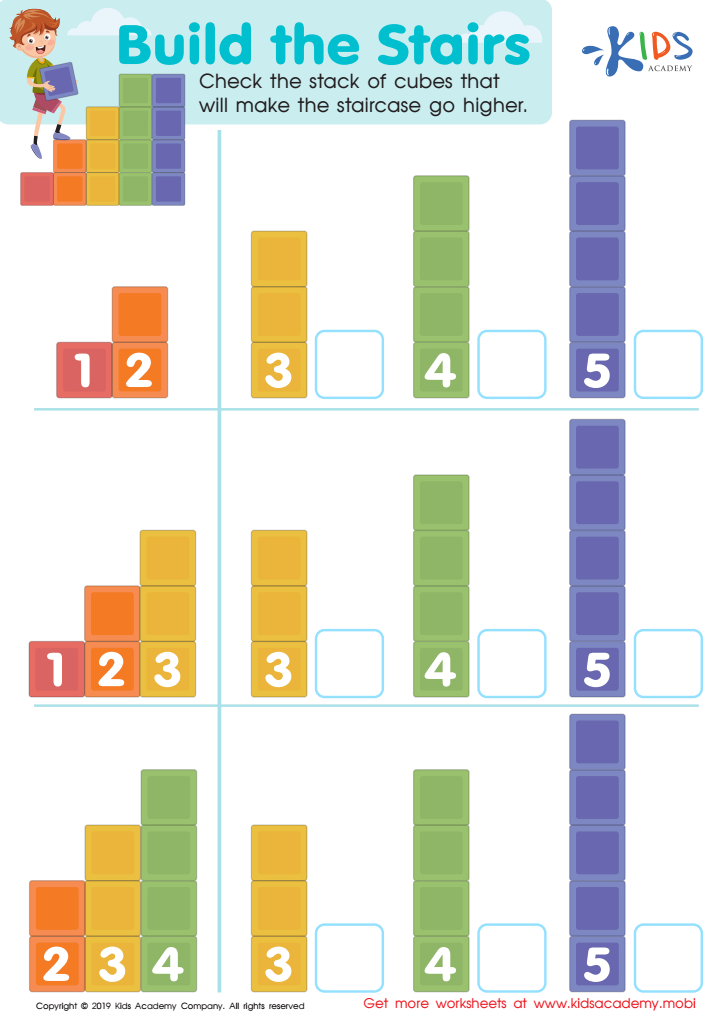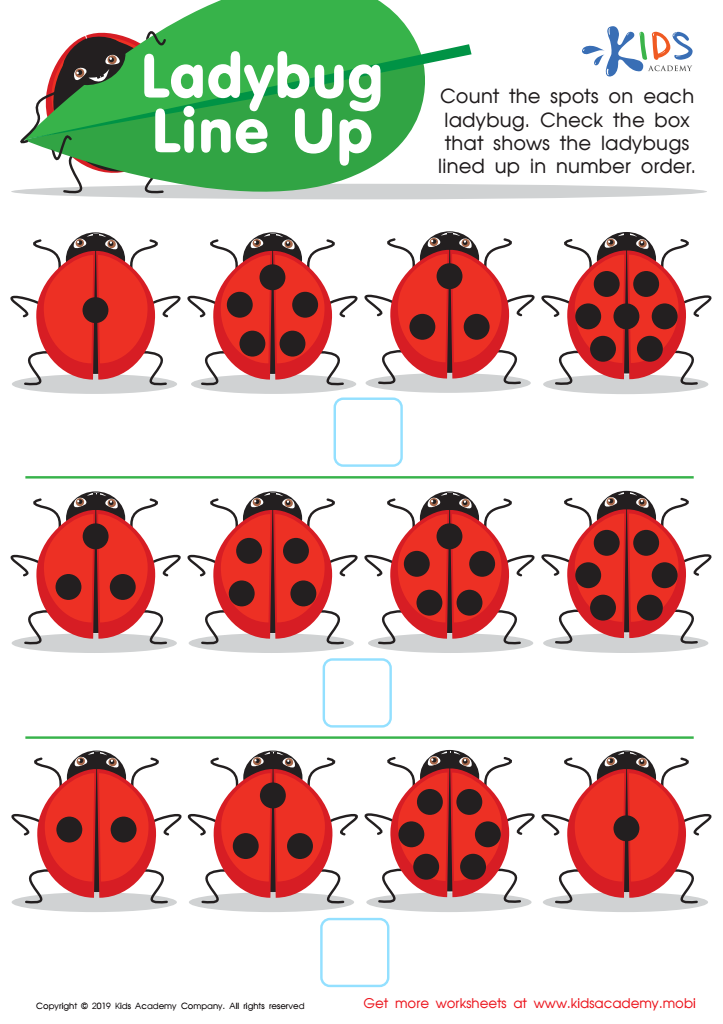Understanding sequencing Numbers 0–10 Worksheets for Ages 3-5
4 filtered results
-
From - To
Our "Understanding Sequencing Numbers 0–10 Worksheets for Ages 3-5" are thoughtfully designed to help young learners grasp the basics of numerical order and sequencing. Through engaging activities, children can practice identifying, arranging, and writing numbers from 0 to 10. These worksheets not only enhance number recognition but also build foundational skills in critical thinking and logical sequencing. Ideal for preschoolers and kindergarteners, our resources make learning fun and interactive, ensuring kids develop confidence in their early math abilities while having a great time. Prepare your child for future math success with our expertly crafted worksheets!


Counting Floors Worksheet


One More Jumps In Worksheet


Build the Stairs Worksheet


Ladybug Line Up Worksheet
Understanding sequencing of numbers from 0 to 10 is crucial for children aged 3-5 as it lays a foundational block for future mathematical learning. At this early stage, children start by developing a sense of order and the relationship between numbers, which are fundamental components of numeracy skills. Mastery of this sequence helps children recognize patterns and understand concepts like more, less, and equality.
Parents and teachers play a pivotal role in fostering this understanding. Early exposure helps children build confidence and enthusiasm for mathematics, often removing the fear or anxiety commonly associated with the subject later in life. Sequencing also improves critical thinking and problem-solving skills as children learn to predict what comes next and understand progression and regression.
Incorporating interactive and playful activities, such as counting games, number songs, and storybooks involving numbers, makes learning enjoyable and effective. It supports the development of fine motor skills, language expression, and cognitive abilities when children verbalize or physically manipulate objects to represent numbers.
By caring about sequencing numbers effectively, parents and teachers equip children with essential academic tools and cognitive framework necessary for their overall educational journey. Furthermore, these early skills show lifelong benefits, aiding in various real-world applications from everyday decision-making to advanced academic endeavors.

 Assign to My Students
Assign to My Students
















